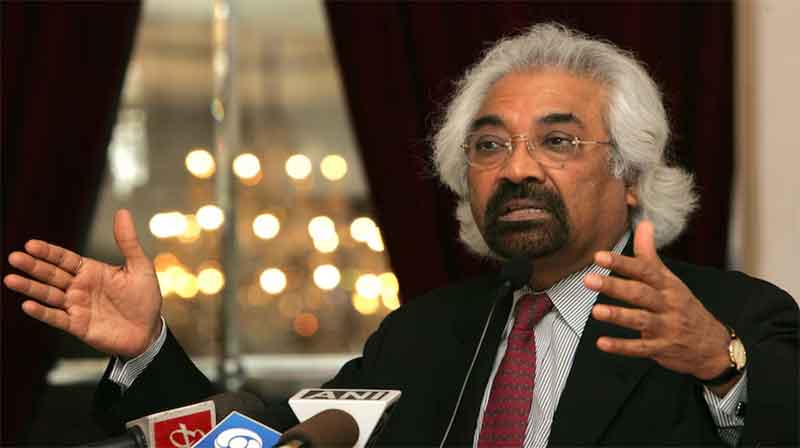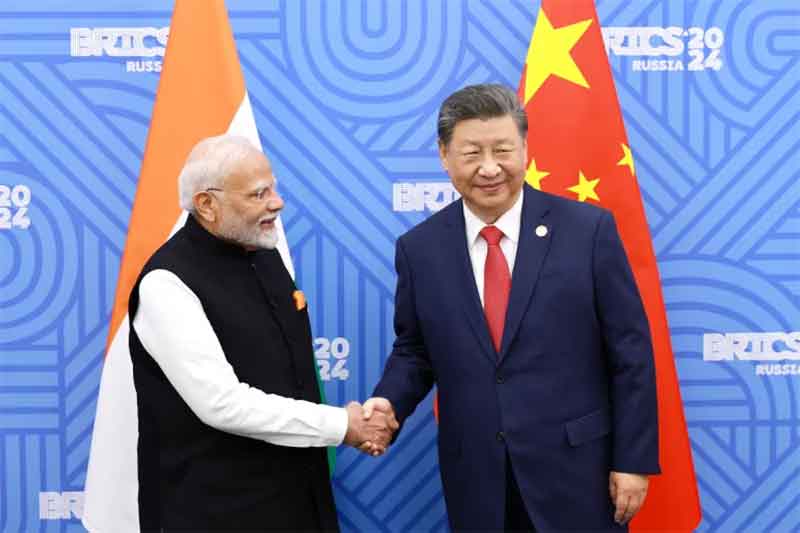
Sam Pitroda, the chairman of the Indian Overseas Congress and a veteran technocrat, has found himself at the center of controversy following his remarks on #China.
His statements, which were largely focused on global trade dynamics and geopolitical perceptions, have been selectively misinterpreted by the BJP in an attempt to mislead the public and score political points.
During an interview, Pitroda questioned the rationale behind labeling China as an outright “enemy” when nations like the U.S. and India engage in massive trade with Beijing.
Specifically, as of January 2025, India’s trade deficit with China was $85.1 billion. This is due to a surge in imports from China and a fall in exports to China.
On the other hand, in 2024, the #USA goods trade deficit with China was around $295.4 billion, meaning the value of US imports from China exceeded exports to China by that amount.
Nevertheless, Washington has a habit of defining enemies to suit its strategic interests. In this very context India, Mr. Pitroda suggested India should rethink its foreign policy approach rather than blindly follow narratives shaped by other global powers.
Pitroda’s broader argument was that while Beijing presents a significant foreign policy, security, and economic challenge for India, it should not automatically be treated as an enemy. Instead, it should be seen as an adversary or competitor, and India’s policies should be shaped based on rational national interest rather than emotional rhetoric.
Instead of engaging with Pitroda’s nuanced argument, the BJP deliberately twisted his remarks, portraying them as a soft stance on China. This was done to manufacture outrage and create political pressure on #Congress Indian National Congress leaders, some of whom distanced themselves from Pitroda under media scrutiny.
The BJP’s media machinery went into overdrive, using selective quotes to attack the opposition while ignoring the key points he raised.
The Modi Government’s Hypocrisy on China
The irony of the BJP’s reaction is stark. Despite its aggressive nationalist rhetoric, the Modi government has failed to take a tough stance on China in real terms.
Chinese PLA troops have encroached into Indian territory in Ladakh, Sikkim, and Arunachal Pradesh, yet the government has responded with diplomatic silence rather than strong action.
The trade deficit with China has ballooned under Modi’s rule, with India importing crucial goods—ranging from electronics to pharmaceuticals—from Beijing.
Despite publicly calling for Aatmanirbhar Bharat (self-reliant India), the government has allowed Chinese investments and trade ties to flourish, showing no real intent to reduce dependency on China.
These points were recently highlighted by Nyay Yoddha and Leader of Opposition Rahul Gandhi in Parliament Budget Session, where he exposed the Modi government’s dithering on China’s encroachment into Indian territories.
It is indeed a sign of meekness as the BJP claims China is an “enemy” for political mileage, yet continues to engage in trade at the expense of India’s manufacturing sector. This double standard exposes the hollowness of the government’s rhetoric.
Pitroda’s comments bring forward an important debate: Should India frame its policies based on national interest or political narratives? Instead of being dictated by emotions or foreign influences, India needs a pragmatic, strategic approach to China, one that prioritises economic strength, technological independence, and national security.
Subscribe to Our Newsletter
Get the latest CounterCurrents updates delivered straight to your inbox.
While China poses serious challenges, blindly labeling it as an enemy without a clear, effective policy response does little to secure India’s interests.
If the Narendra Modi government truly sees China as a threat, it should act decisively rather than indulging in media theatrics. Otherwise, its accusations against Pitroda and the Congress remain nothing more than political deflection.
Frank Huzur is an author and journalist.















































